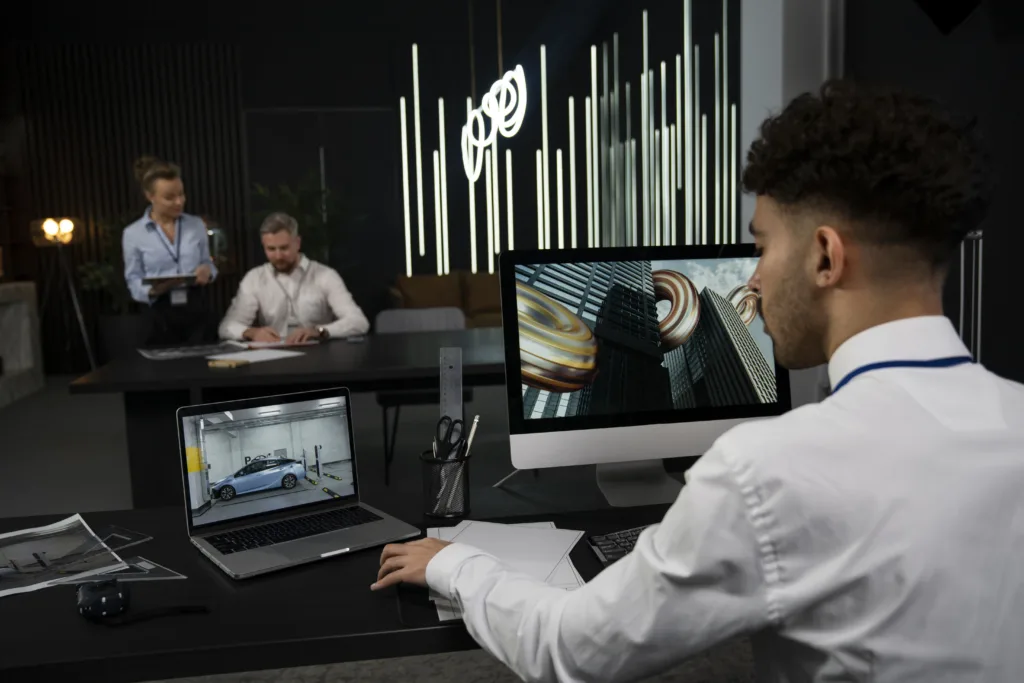The Vital Role Of Commercial Security Systems Houston In Business Safeguarding
In today’s fast-paced and interconnected world, ensuring the safety and security of businesses is paramount. From protecting physical assets to safeguarding sensitive data, companies face a myriad of security challenges. In this landscape, commercial security systems in Houston play a crucial role in fortifying business establishments against various threats, both internal and external.

Safeguarding Physical Assets
One of the primary functions of commercial security systems is to protect physical assets such as buildings, inventory, and equipment. Modern security systems employ a combination of technologies, including surveillance cameras, access control systems, and alarms, to deter unauthorized access and prevent theft or vandalism. These systems provide businesses with real-time monitoring capabilities, allowing them to detect and respond to security breaches promptly.
Surveillance cameras serve as the eyes of the security system, continuously monitoring key areas within and around the premises. High-definition cameras equipped with advanced features such as motion detection and night vision ensure comprehensive coverage and visibility, even in challenging conditions. In the event of an incident, recorded footage can serve as valuable evidence for investigation and prosecution.
Access control systems regulate entry and exit points, limiting access to authorized personnel only. By implementing measures such as keycards, biometric scanners, or keypad entry systems, businesses can enforce strict access policies and track employee movements throughout the facility. These systems not only prevent unauthorized individuals from entering restricted areas but also help mitigate the risk of internal threats such as employee theft or sabotage.
Protecting Commercial Security Systems Data And Information
In an era dominated by digital technology, safeguarding sensitive data and information is paramount for businesses across industries. Commercial security systems extend beyond physical protection to include cybersecurity measures designed to defend against cyber threats and data breaches.
Firewalls, antivirus software, and intrusion detection systems form the backbone of cybersecurity defenses, shielding networks and systems from malicious attacks and unauthorized access. Regular security audits and vulnerability assessments help identify potential weaknesses in the infrastructure, allowing businesses to address security gaps and strengthen their defenses proactively.
Data encryption technologies ensure that sensitive information remains secure, both in transit and at rest. By encrypting data stored on servers, computers, and mobile devices, businesses can prevent unauthorized users from accessing or intercepting confidential data, thereby reducing the risk of data theft or leakage.
Enhancing Overall Safety And Efficiency
Beyond protecting assets and data, commercial security systems contribute to the overall safety and efficiency of business operations. Integrated security platforms provide centralized control and management, allowing businesses to streamline security processes and respond quickly to emerging threats or emergencies.
Remote monitoring capabilities enable businesses to keep a watchful eye on their premises from anywhere, at any time. Whether monitoring multiple locations or conducting virtual patrols after hours, remote access empowers businesses to maintain vigilance and respond promptly to security incidents, minimizing potential losses or damages.
Furthermore, the presence of robust security systems can have a deterrent effect, dissuading would-be criminals from targeting the premises and providing peace of mind to employees, customers, and stakeholders. By investing in comprehensive security solutions, businesses demonstrate their commitment to safety and security, fostering trust and confidence among their constituents.
Streamlining Operations And Compliance
Commercial security systems not only enhance safety but also streamline business operations and ensure compliance with regulatory requirements. For instance, video surveillance systems can aid in monitoring adherence to safety protocols and regulations in industrial settings, helping businesses identify and address potential hazards or non-compliance issues proactively.
Access control systems can also play a crucial role in compliance management by restricting access to sensitive areas and maintaining detailed logs of employee entry and exit times. These logs can serve as valuable documentation during audits or regulatory inspections, demonstrating the organization’s commitment to compliance with industry standards and regulations.
Moreover, integrated security systems can automate various security-related tasks, reducing the need for manual intervention and freeing up personnel to focus on core business activities. For example, automated alerts and notifications can promptly inform security personnel or designated authorities of potential security breaches or anomalies, enabling swift response and resolution.
Conclusion
In an increasingly complex and interconnected business environment, the role of commercial security systems in Houston in safeguarding businesses cannot be overstated. From protecting physical assets and data to enhancing overall safety and efficiency, these systems serve as the cornerstone of modern business security strategies. By leveraging the latest technologies and best practices, businesses can mitigate risks, safeguard their interests, and thrive in an ever-evolving security landscape.

